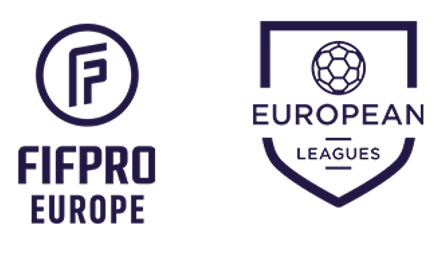November 1 – Meeting in Brussels last week, the European arms of players union FIFPRO and the World League Association took a step closer to European Union regulation, or at least discussion of tighter European employment protocols as they relate to social enterprises – of which football is regarded as one.
In a joint statement they “stressed the importance of the existing European Sectoral Social Dialogue as a starting point for the stability and sustainable development of the professional football sector in Europe.”
There are 44 Sectoral Social Dialogue Committees consist of 65 European employers’ organisations and 15 European trade union federations and represent approximately 185 million workers and over 6 million firms across the EU.
Sectoral Social Dialogue Committees were established by the EU in 1998 with their aim being to be consulted on developments at EU level having social implications as well as to develop and to promote the dialogue between the social partners at EU sectoral level.
Where this becomes relevant to football is on issues like the match calendar and player workloads, as well as on the new competition proposals that have a direct effect on clubs (social entities) and their employees (players). Each year European sectoral social partners adopt between 30 and 50 joint outcome positions on a wide range of topics.
While not a direct challenge to FIFA and UEFA’s authority, it does mark a direction of travel that would reduce their power to impose themselves without dialogue on leagues and clubs, essentially reducing the threat to their sustainability, livelihoods and social standing from FIFA in particular.
“At the roundtable in Brussels, representatives from leagues and players’ unions discussed a governance model where social partners play a central role to negotiate agreements on labour matters between the employees and employers in the professional football sector under both national and EU law,” said the statement.
This of course could have impact on FIFA’s competitions if the EU mandated new player working conditions or moved to protect its own clubs and leagues – something that is ultimately within its power to do. Taken to its ultimate end, that presents a clear and present danger for FIFA’s authority in Europe.
“FIFPRO Europe and European Leagues agreed to continue their dialogue in the coming weeks and months as a matter ofpriority,” said the statement.
The latest powwow between players and leagues, hosted by the Belgian Pro League, follows a complaint to the European Commission against FIFA over the international match calendar.
The complaint maintains that FIFA has a conflict of interest over its role as a competition organiser and governing body and that it is breaking European competition law.
Also at the heart of the complaint is that FIFA has forced its international calendar on players and leagues without any meaningful agreement or discussion with them. An assertion that FIFA has denied.
The complaint focuses on decisions taken over the international match calendar and in particular the planned 2026 Club World Cup which FIFPRO and the World Leagues Association have already demanded should be abandoned, but also on World Cup 2026.
For FIFA, already scrambling to find revenue for its Club World Cup expansion plan in 2025, it adds another problem to a rapidly growing mountain of issues to deal.
For the leagues and players’ union it is more proof of their distrust in a global governing body that they say refuses to fully acknowledge them as key stakeholders in the game.
Contact the writer of this story at moc.l1744528443labto1744528443ofdlr1744528443owedi1744528443sni@n1744528443osloh1744528443cin.l1744528443uap1744528443

